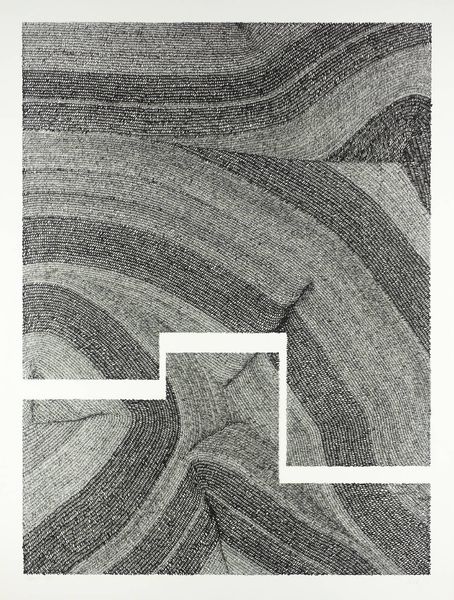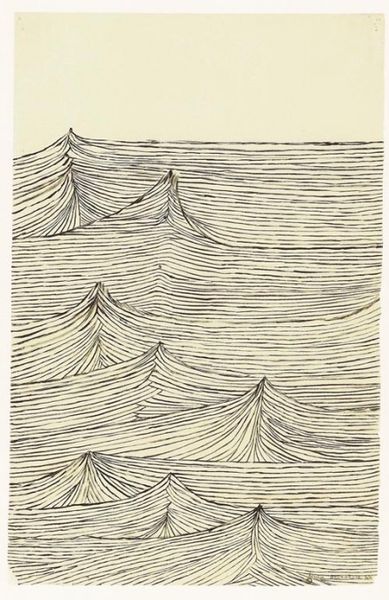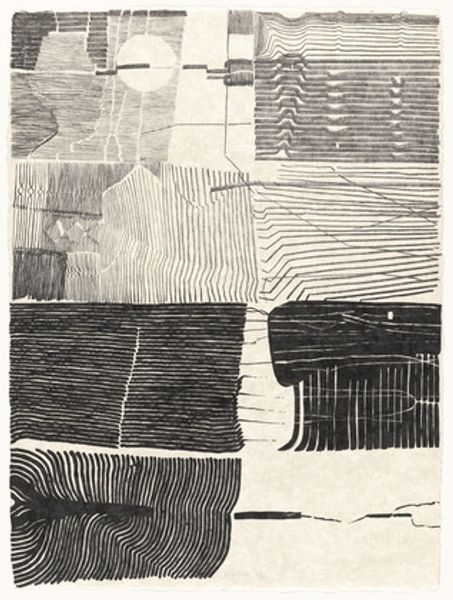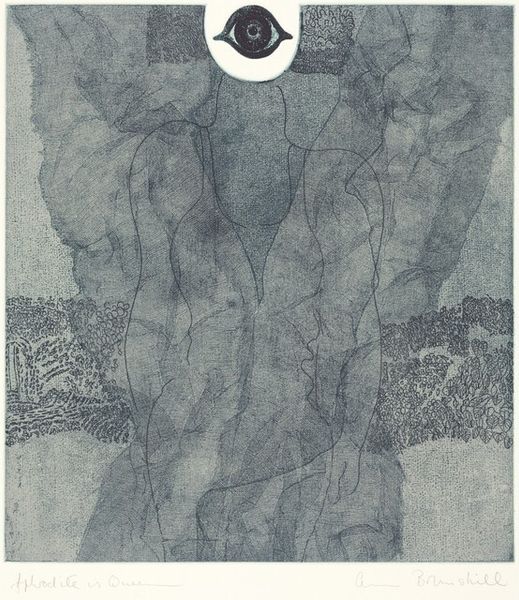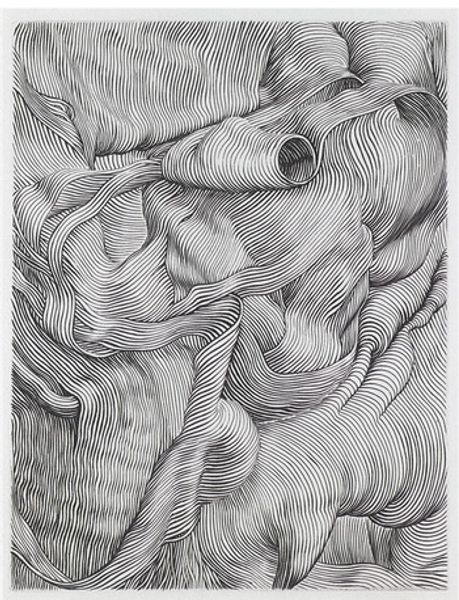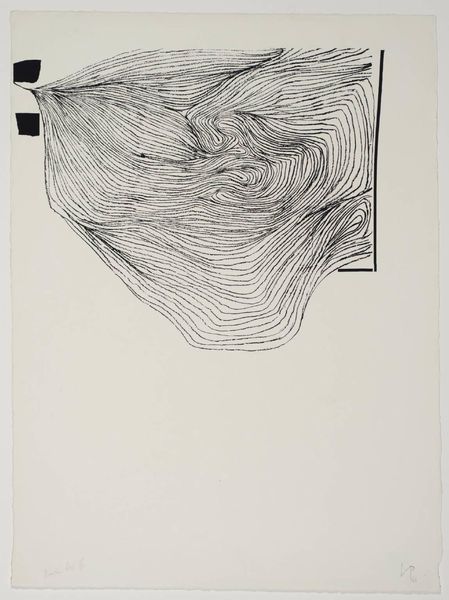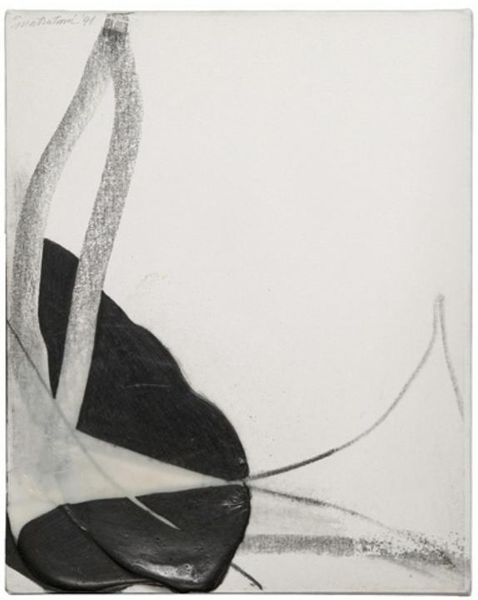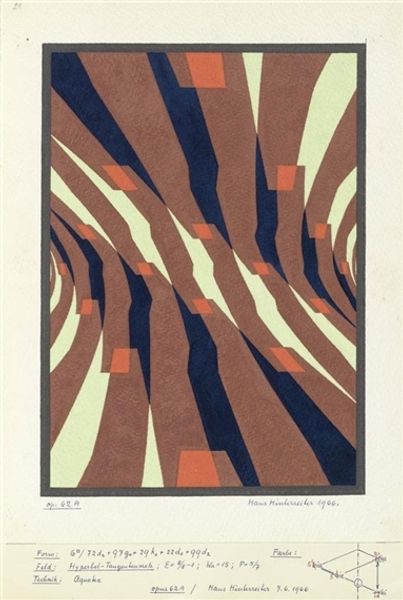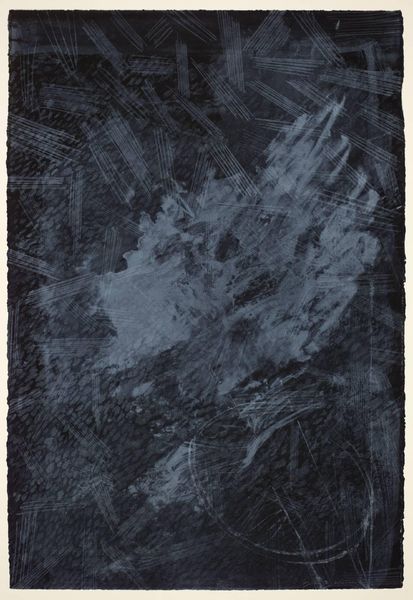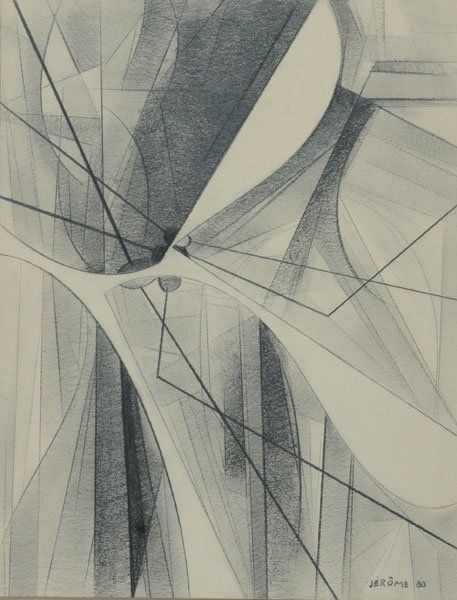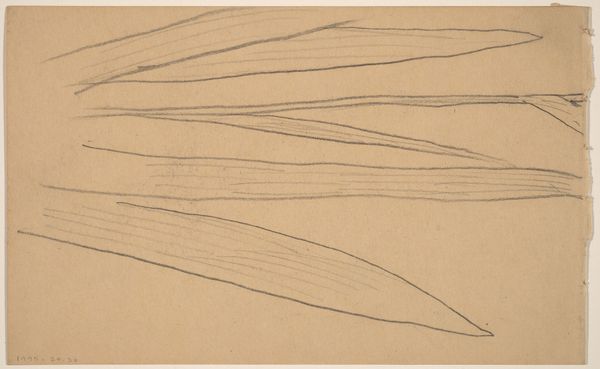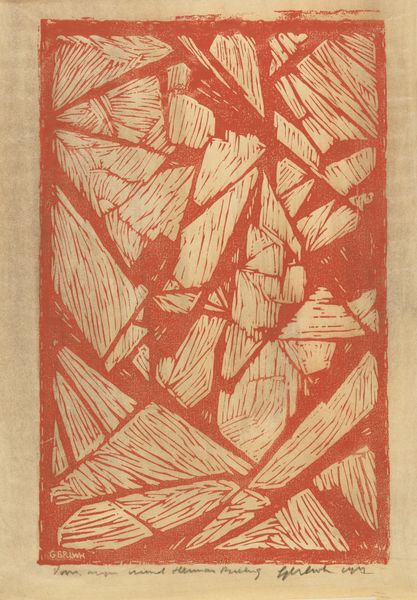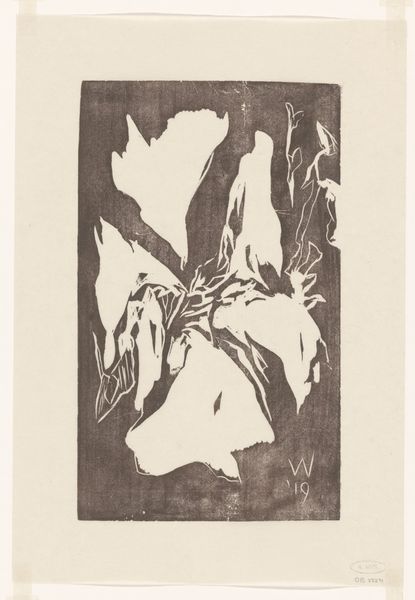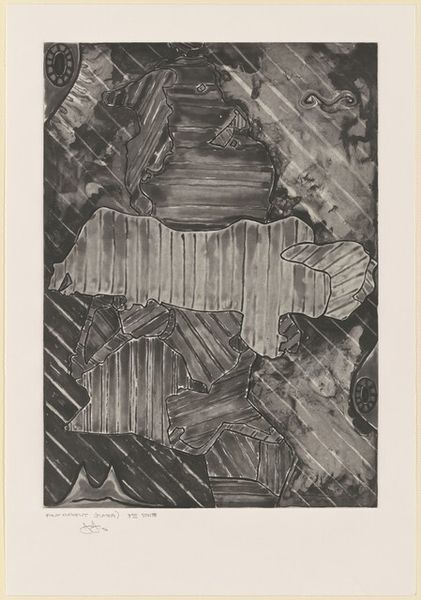
La tapisserie de mon enfance—montains in Aubusson (The Tapestry of My Childhood—Mountains in Aubusson) 1947
0:00
0:00
drawing, ink
#
drawing
#
landscape
#
etching
#
ink
#
geometric
#
line
Dimensions: sheet: 48.26 × 30.48 cm (19 × 12 in.)
Copyright: National Gallery of Art: CC0 1.0
Editor: This is Louise Bourgeois' 1947 ink drawing, "La tapisserie de mon enfance—mountains in Aubusson." The mountains are depicted with just endless parallel lines. What do you make of it? Curator: Well, this seemingly simple line drawing holds a complex interplay between personal memory and collective history. Bourgeois titles it as a tapestry, referencing a traditionally feminine craft rooted in the Aubusson region of France. Do you notice how this tapestry transforms into a landscape? Editor: Yes, I see the mountains, but the lines almost flatten them. Curator: Precisely. By rendering these mountains, symbolic of stability and permanence, in fragile ink lines, Bourgeois destabilizes conventional notions of landscape. Consider the patriarchal dominance often embedded within landscape painting throughout art history. What do you think she might be suggesting by disrupting this tradition? Editor: Perhaps that our memories of even the most stable things are fluid, like the ink itself. Also, that landscape and place, are strongly linked to the feminine through the “tapestry” title and the craft tradition. Curator: Exactly! She's subtly subverting expectations. Remember that Bourgeois fled France for New York shortly after making this drawing because of patriarchal pressure within her marriage. Do you see any echoes of those feelings of being trapped? Editor: It’s almost claustrophobic now that you mention it. The mountains feel less like grand nature and more like… a cage. Curator: Absolutely. And the relentless repetition of lines could be a visual metaphor for the repetitive, confining roles often imposed on women. Editor: Wow. I’ll never look at a line drawing the same way again. I really learned a lot about the layers of meaning present in simple form. Curator: It's all about engaging in active dialogue with the art!
Comments
No comments
Be the first to comment and join the conversation on the ultimate creative platform.
